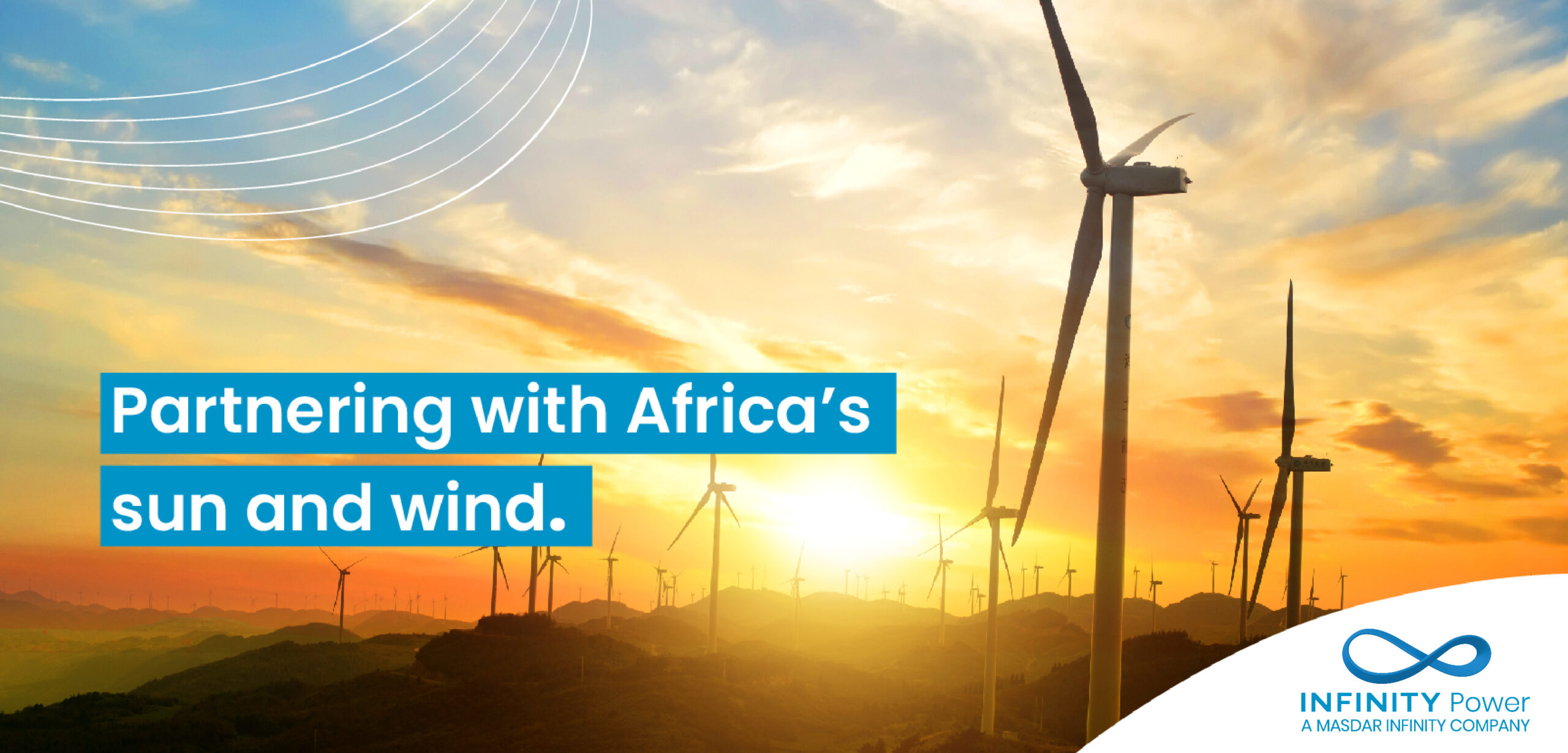- Jordan Green Ammonia will conduct feasibility studies for green hydrogen projects in the kingdom. (Green Hydrogen)
- US electric aircraft maker Joby Aviation set to join Abu Dhabi’s SAVI cluster. (Electric Mobility)
- UAE’s Amea Power eyes USD 400 mn in funding to fuel expansion plans. (Green Finance)
- Adnoc inks agreement with Zero Petroleum to explore setting up a UAE-based synthetic fuel facility. (Sustainable Fuel)
- EBRD supports Morocco’s green energy transition through a new agreement. (Renewables)
- GCC Interconnection Authority launches energy trading platform for GCC-Iraq transmission grid. (Renewables)
- Oman will auction “vast” tracts of land for renewables projects. (What We’re Tracking Today)
- Morocco is lining up a renewables-powered desalination tender. (Also on Our Radar)
- Is climate change just too ‘cheugy’ for Gen Z? (Climate in the News)

Monday, 16 October 2023
Jordan Green Ammonia will conduct feasibility studies for green hydrogen projects in the kingdom
TL;DR
WHAT WE’RE TRACKING TODAY
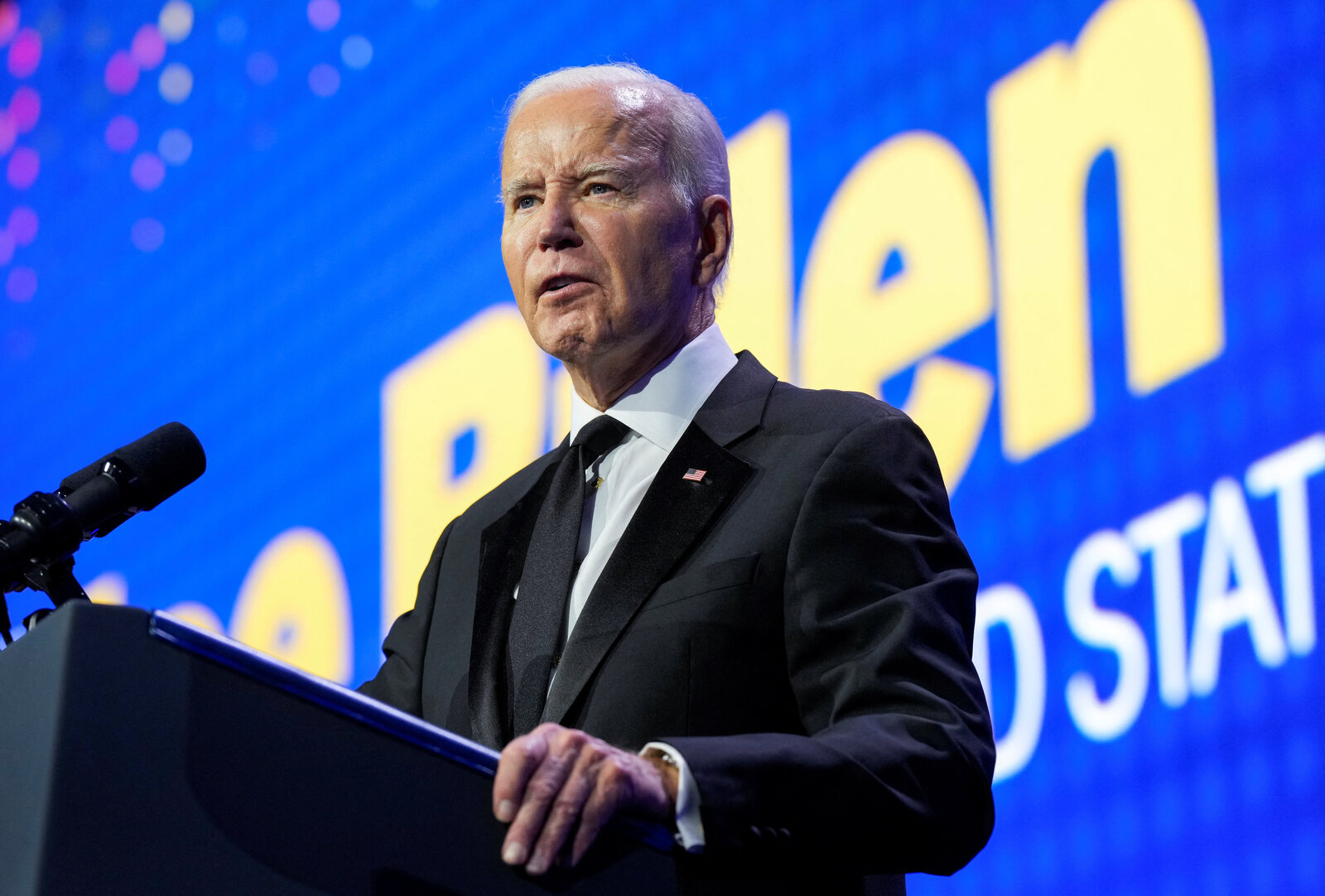
Good morning, friends. We have a packed issue this morning with updates from around the region cutting across all sectors of the climate industry. Let’s dive right in.
THE BIG CLIMATE STORIES- Jordan’s Energy and Mineral Resources Ministry has signed an MoU with Jordan Green Ammonia to conduct feasibility studies on developing green hydrogen projects in the country and US electric aircraft maker Joby Aviation plans to participate in Abu Dhabi’s newly formed Smart and Autonomous Vehicles Industry cluster.
^^ We have the details on these stories and more in the news well, below.
HAPPENING TODAY- The UNCTAD World Investment Forum is kicking off today in Abu Dhabi and running through to Friday. This year’s theme focuses on sustainable investments, with a diverse range of climate financing sessions on promoting investments in the blue economy, agrifood systems, sustainable infrastructure, carbon markets, the circular economy, strategic minerals for decarbonization, and sustainable tourism. Some sessions will tackle reform of financial institutions needed to reach net zero, such as a session on integrating nature-related risk into capital markets and financing an equitable nature economy. Public sector investments and stock exchange action on climate disclosures will also be discussed.
ALSO- The IAEA Fusion Energy Conference will kick off today and run until Saturday in London. The focus of this year’s conference reflects the priorities of the new nuclear fusion era in energy research, technology deployment, and preparation for industrial deployment. It aims to serve as a platform for exchanging the outcomes of research and development efforts in both national and global fusion programmes.
THE BIG CLIMATE STORY OUTSIDE THE REGION- Seven green hydrogen hubs across the US selected for USD 7 bn grants: US President Joe Biden mobilized USD 7 bn in federal grants to support development of seven green hydrogen production hubs across 16 states on Friday. The projects — established by companies including Exxon and Amazon — are expected to rake in investments totalling nearly USD 50 bn when accounting for additional private financing from the developing firms, Biden said. The government funding under the US’ landmark USD 369 bn Inflation Reduction Act aims to set up the necessary clean hydrogen infrastructure to help hard-to-abate sectors — including the cement and steelmaking industries —decarbonize their operations through low-carbon fuel usage. The US has set a target to up its clean hydrogen production capacity to 10 mn tons by 2030, before reaching 50 mn tons by 2050.
The federal grants dominated coverage over the weekend: Reuters | Bloomberg | The Associated Press | The Washington Post | The New York Times | CNN | BBC
WATCH THIS SPACE #1- Egypt is studying two offers to finalize separate agreements with Orascom Construction (OC) and Scatec to build wind projects in the country, a senior Electricity Ministry official confirmed to Enterprise. The New Renewable Energy Authority and the energy companies are expected to sign joint development agreements within the next two months, our source said.
REMEMBER- An OC-led consortium with Engie and Toyota Tsusho signed up to build a 3 GW wind farm and Scatec agreed to develop a portfolio of up to 5 GW of wind projects with USD 5 bn on the sidelines of COP27 in Egypt last year.
WATCH THIS SPACE #2- Germany will reportedly pour in investments for Morocco’s green hydrogen sector in the next two years, a Moroccan news outlet reported on Saturday, referencing a cabinet Tweet. Germany’s Federal Minister for Economic Cooperation and Development Svenja Schulze headed a delegation on a visit with the Green Energy Park authority of Central Morocco’s town of Ben Guerir, and said her country will be collaborating with the kingdom on renewables projects under plans to bring online a green hydrogen production plant in Morocco by 2025. Germany signed an agreement with the Moroccan government to build a 100 MW hydrogen plant in the kingdom back in 2020 and has a target of producing 95-130 TWh of hydrogen by 2030, with 50-70% of the green fuels mix being sourced from international markets, according to Reuters.
WATCH THIS SPACE #3- Oman will auction “vast” tracts of land for renewables projects: The Omani government is allocating over 7.8k km2 of land in the Northern governorates of Al Dhahirah, Al Dakhiliyah, and South Al Sharqiyah for renewables and green fuel projects as part of plans to have clean energy comprise a third of its power mix by 2030, Oman Daily Observer reported on Friday. Solar radiation averages 2-2.5k KWh (2.5 MWh) per square meter in different parts of the country, while wind speeds average 8-10 meters/second, which is suitable for large-scale renewables development, the country’s Energy and Minerals Ministry said. The newly announced land allocations add to the country’s already identified 50k km2 of land blocks for planned green hydrogen generation projects: 25.7k km2 in Al Jazer, 7.9k km2 in Salalah, and 15.9k km2 in Duqm, the ministry said. The sultanate's strategy for the energy source includes an increase in investment in green hydrogen to USD 140 bn by 2050.
ALSO FROM OMAN- The sultanate’s first wave energy pilot projects are expected to be launched within the next two years, Norwegian wave power firm Havkraft MENA Advisor and UK-based consultancy Translucidus Managing Director Matt Minshall told Zawya Projects in an interview. His statements come months after Translucidus joined forces with Havkraft to establish Oman’s first wave energy power generation facilities.
WATCH THIS SPACE #4- KSA plans to use carbon capture tech and green hydrogen to produce SAFs, the Managing Director of the National Hydrogen and Circular Economy Office at Saudi Arabia’s Energy Ministry Zaid Al Gharib told Asharq Al Awsat last week. Sustainable aviation fuels (SAFs) are produced from a mix of renewables-powered hydrogen and carbon dioxide captured from the atmosphere. KSA’s government is currently undertaking studies on how to capitalize on the green hydrogen it will produce from its USD 8.4 bn utility-scale project in Neom as well as other planned green fuel projects, as well as its carbon capture capacity at underground wells to generate a mix of low-carbon fuels to meet its 2060 carbon neutrality target, Gharib said.
Lots of carbon to use: One of KSA’s largest potential underground CO2 storage reservoirs — announced under the Saudi Green Initiative — will have a 44 mn ton carbon capture capacity by 2035, he noted. The Neom mega green hydrogen plant — the first of its kind to achieve financial close in the region — is set to produce 250k tons by 2026, he added. The kingdom also plans to leverage its geographical position to establish a green fuels corridor connecting Asia with central Europe through India to boost its export capacity of low-carbon energy sources, Gharib told the news outlet.
SPEAKING OF CARBON- MENA’s voluntary carbon credit market could see trading of up to 150 mn CO2 tons by 2030: The regional voluntary carbon credits market (VCM) could see CO2 trading of 100-150 mn tons by the end of the decade, Regional Voluntary Carbon Market Company (RVCMC) CEO Riham ElGizy told Arab News in an interview on Wednesday. RCVMC — established by the Saudi sovereign wealth fund and the Saudi Tadawul Group with SAR 500 mn of capital — plans to launch its carbon trading exchange in the second half of next year, Ghizy said. “Before the establishment of the platform, RVCMC will make available exchange and advisory services to buyers and suppliers,” she said. “We’re not waiting till the exchange comes online by 2024.”
RVCMC also announced its planned VCM structure: RVCMC’s carbon platform is “going to be a spot market to help price discovery by 2024,” ElGizy noted. “We will have as well in that exchange over-the-counter trading, we will have a marketplace for suppliers to sell their own products,” she added. Earlier in June, RVCMC sold 2 mn tons of carbon credits in what the company described as the largest-ever voluntary carbon credit auction.
WATCH THIS SPACE #5- The Neom Green Hydrogen Company is exploring potential expansions in Saudi Arabia and the wider region, CEO David Edmondson told Arab News in an interview last week. This comes in parallel to preparations to launch the company’s green ammonia facility in Neon, which is slated to begin full-scale production by the end of 2026, months after its first operations commences, Edmondson added. The facility will be powered by USD 8.5 bn utility-scale green hydrogen facility and produce 1.2 mn tons of green ammonia annually, making it the largest of its kind in the world. The first phase will be launched in summer of 2026. The interview came on the sidelines of the MENA Climate Week in Riyadh.
THE DANGER ZONE- Climate-induced food and water shocks could cause USD 5 tn in global losses in five years under extreme scenarios, according to new data by ins. company Lloyd’s of London. Lloyd's, in partnership with the Cambridge Centre for Risk Studies, carried out a “system risk scenario” simulation to estimate the impact food and water shortages on the back of climate-driven extreme weather would have in a five-year period under major, severe, and extreme scenarios. They found that nutritional insecurity could have an economic toll of up to USD 5 tn under a “plausible increase” scenario, and could reach USD 17.6 tn under the most extreme forecast. The lowest severity scenario would see an economic toll of USD 3 tn, the firm said.
|
***
YOU’RE READING ENTERPRISE CLIMATE, the essential MENA publication for senior execs who care about the world’s most important industry. We’re out Monday through Thursday by 5am Cairo / 5am Riyadh / 6am UAE.
EXPLORE MORE OF ENTERPRISE ON THE WEB — tap or click here to read EnterpriseAM, EnterprisePM, and The Weekend Edition on our powerful new website packed with reader-friendly features.
Were you forwarded this email? Get your own subscription without charge here or reach out to us on climate@enterprisemea.com with comments, suggestions and story tips.
***
CIRCLE YOUR CALENDAR-
Saudi Arabia will host the Environment Ministers in the Islamic World on Wednesday, 18 October and Thursday, 19 October in Jeddah. The two-day event will bring together ministers from 52 countries, as well as delegates from 30 regional and international environmental organizations, to discuss the green transition and developments in clean technologies within the Islamic world.
Oman will host the Duqm Economic Forum from Monday, 16 October to Tuesday, 17 October in Duqm. The two-day event — organized by the Public Authority for Special Economic Zones and FreeZones — will showcase green investment windows and possible partnerships at the Special Economic Zone at Duqm.
Egypt will host the fourth meeting of the COP27 Transitional Committee from Tuesday, 17 October to Friday, 20 October in Aswan. The meeting aims to establish institutional arrangements, modalities, governance structures, and terms of reference for the landmark Loss and Damage Fund while expanding sources for climate funding under the program.
Check out our full calendar on the web for a comprehensive listing of upcoming news events, national holidays and news triggers.
GREEN HYDROGEN
Jordan Green Ammonia will conduct feasibility studies for green hydrogen projects in Jordan
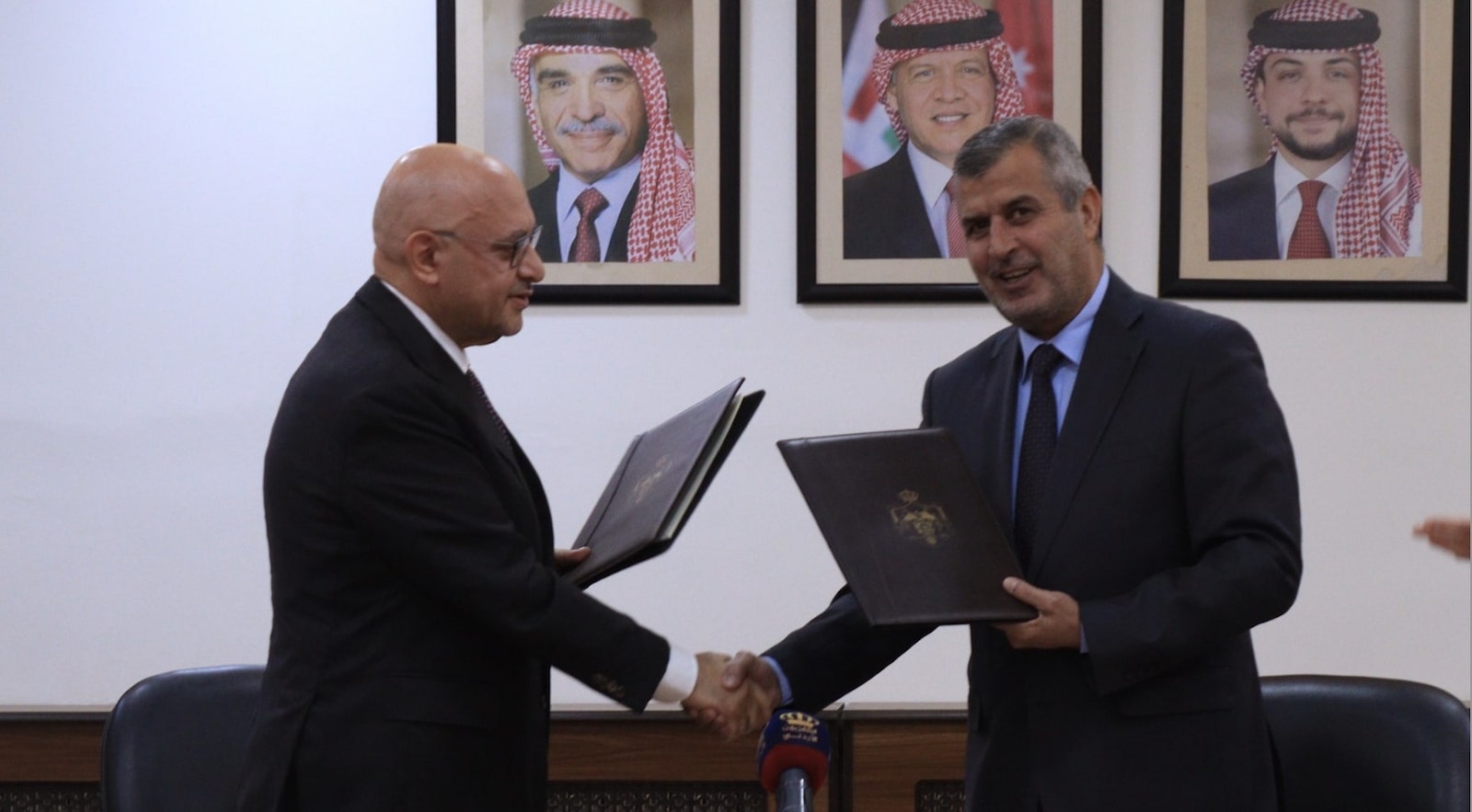
Jordan’s foray into green hydrogen gets third push: Jordan’s Energy and Mineral Resources Ministry has signed an MoU with Jordan Green Ammonia to conduct feasibility studies on developing green hydrogen projects in the country, state news agency Petra reports. The MoU is the third of its kind to be signed by the ministry for the production of green hydrogen and ammonia, Jordan’s Energy Minister Saleh Kharabsheh said.
What we know: The MoU will pave the way for Jordan Green Ammonia — a recently established JV between Poland-based Hynfra and Jordan-based Fidelity Group — to conduct a one-year preliminary feasibility study to set up a green hydrogen project in the country, Kharabsheh said. The ministry will enter into a framework agreement followed by a final agreement based on the outcomes of the study, he added.
Jordan Green Ammonia has big plans: The JV was formed in June to establish an ambitious green ammonia plant in the Aqaba Special Economic Zone, according to a statement by Hynfra at the time. The project includes a renewable ammonia synthesis plant powered by a 530 MW solar installation, an energy storage facility, and a seawater desalination plant. The project is expected to generate 100k to 200k tons of ammonia per year, with most of the output set for exports to EU countries.
More to come? Kharabsheh said that 12 unnamed companies have expressed interest in signing agreements with the ministry on green hydrogen, adding that the kingdom plans to release its green hydrogen strategy.
REMEMBER- Jordan plans to update its 2030 renewable energy plans with more ambitious targets by the end of this year or early next year, Kharabsheh told Reuters earlier this month. Renewables currently contribute around 27% of the country’s energy mix, while Jordan’s goal has been to reach 30% by 2030, although officials have previously signaled that it could hit a much higher target of up to 50%.
ELECTRIC MOBILITY
US electric aircraft maker Joby Aviation set to join Abu Dhabi’s SAVI cluster

Joby Aviation could be joining Abu Dhabi’s SAVI: US electric aircraft maker Joby Aviation plans to participate in Abu Dhabi’s newly formed Smart and Autonomous Vehicles Industry (SAVI) cluster, according to a statement by the Abu Dhabi Investment Office. The California-based company aims to take part in the cluster “to support the maturation of technology that will enable it to fly its aircraft autonomously in the future.”
What is SAVI? The UAE plans to set up the SAVI cluster in Masdar City in Abu Dhabi, which is expected to bring in AED 90 bn (c. USD 24.5 bn) to AED 120 bn to the economy. The formation of the cluster will help boost Abu Dhabi’s “position as a global hub for the development of smart and autonomous vehicles,” according to a statement by the Abu Dhabi Media Office last week.
China’s WeRide is also in: Chinese autonomous driving startup WeRide will set up its regional headquarters in SAVI, Wam reports. The Abu Dhabi headquarters will “operate as the regional headquarters to transform autonomous driving technology into concrete industry applications…”.
REMEMBER- UAE eyes being a pioneer in autonomous mobility: The UAE granted its first national license for self-driving vehicles to China’s WeRide in July — a first in the Middle East and “even globally,”. The license grants WeRide the right to conduct various road testing and operations of self-driving vehicles in the country.
GREEN FINANCE
UAE’s Amea Power needs USD 400 mn in funding to fuel expansion plans

UAE’s Amea Power wants to drum up funds for expansion overseas: UAE renewables company Amea Power plans to raise USD 400 mn in a new equity funding round to support its expansion plans into new markets, the company’s chair Hussein Al Nuwais told Asharq Business in an interview last week. Amea — which has been making strides in both the regional and African clean energy sector lately — plans to use the proceeds to expand into Central Asia, with plans to announce a 1 GW solar or wind energy project in the region “in the next three months,” Al Nuwais said, adding that the company is also looking to expand its foothold in other MENA markets beyond Egypt, Morocco, and Tunisia.
More details: Amea Power — which closed a USD 75 mn equity funding round that saw Japan’s Softbank snap up 40% of its shares in a company last July — says the new offering will still see it retain a majority of its book value. The UK’s Citibank will serve as the company’s financial counsel for the planned transaction, serving as the advisor in attracting investors to the company’s upcoming stake offering.
Amea has plans for Egypt and Morocco: Beyond the company’s planned 1 GW green hydrogen plant in Egypt — for which it recently concluded its feasibility study — Amea says it will announce an even larger utility-scale project in the country “soon,” and is looking to develop a similar green hydrogen project in Morocco, according to Al Nuwais.
Acquisition, bond issuances, and IPO plans in the offing: To quickly expand its operations into targeted foreign markets, the company says it is considering the acquisition of two companies it did not name, one based in Turkey and the other in MENA, and Al Nowais noted that Amea may publicly list its shares in the next three to four years. Beyond acquisition agreements and IPO ambitions, the company also says it is in talks with the African Development Bank, the Abu Dhabi Fund for Development, and other international lenders to explore the possibility of financing its expansion plans through green bond issuances, he noted.
SUSTAINABLE FUEL
Adnoc, Zero Petroleum sign agreement to explore setting up synthetic fuel facility in the UAE
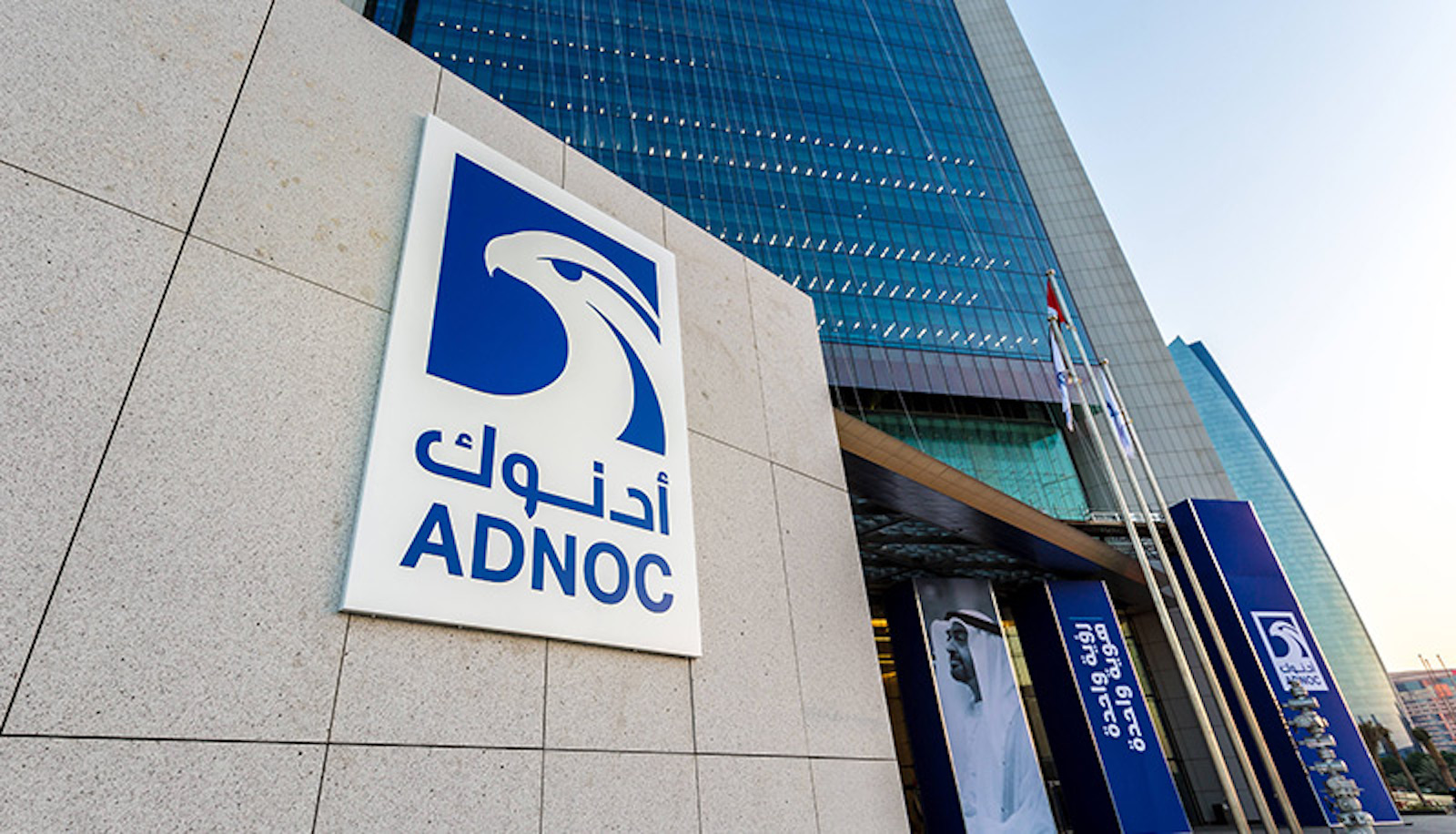
Another bid for synthetic fuel: Abu Dhabi’s oil champion Adnoc has signed an agreement with British carbon-neutral synthetic fuel producer Zero Petroleum to explore setting up a new plant for synthetic fuels in the UAE, according to a statement released on Thursday.
What we know: The pact will pave the way for assessing plans for a large-scale facility combining the British company’s technology with green hydrogen, renewable power, and carbon capture. Such a plant “would focus on commercial scale production using Zero’s breakthrough fuel technology,” the statement said.
About the company: Zero produces 100% fossil-fuel free petroleum-based products that are synthesized by water recycling and atmospheric carbon dioxide using renewable energy, according to the company’s LinkedIn. It aims to become a key leader in supplying fully circular and carbon-neutral products at scale.
REMEMBER- Adnoc wants to speed up its roadmap to carbon neutrality: Adnoc recently said it is planning to reach net zero by 2045, instead of its originally planned 2050, and double its carbon capture capacity by 2030.
RENEWABLES
EBRD supports Morocco’s green energy transition through a new agreement
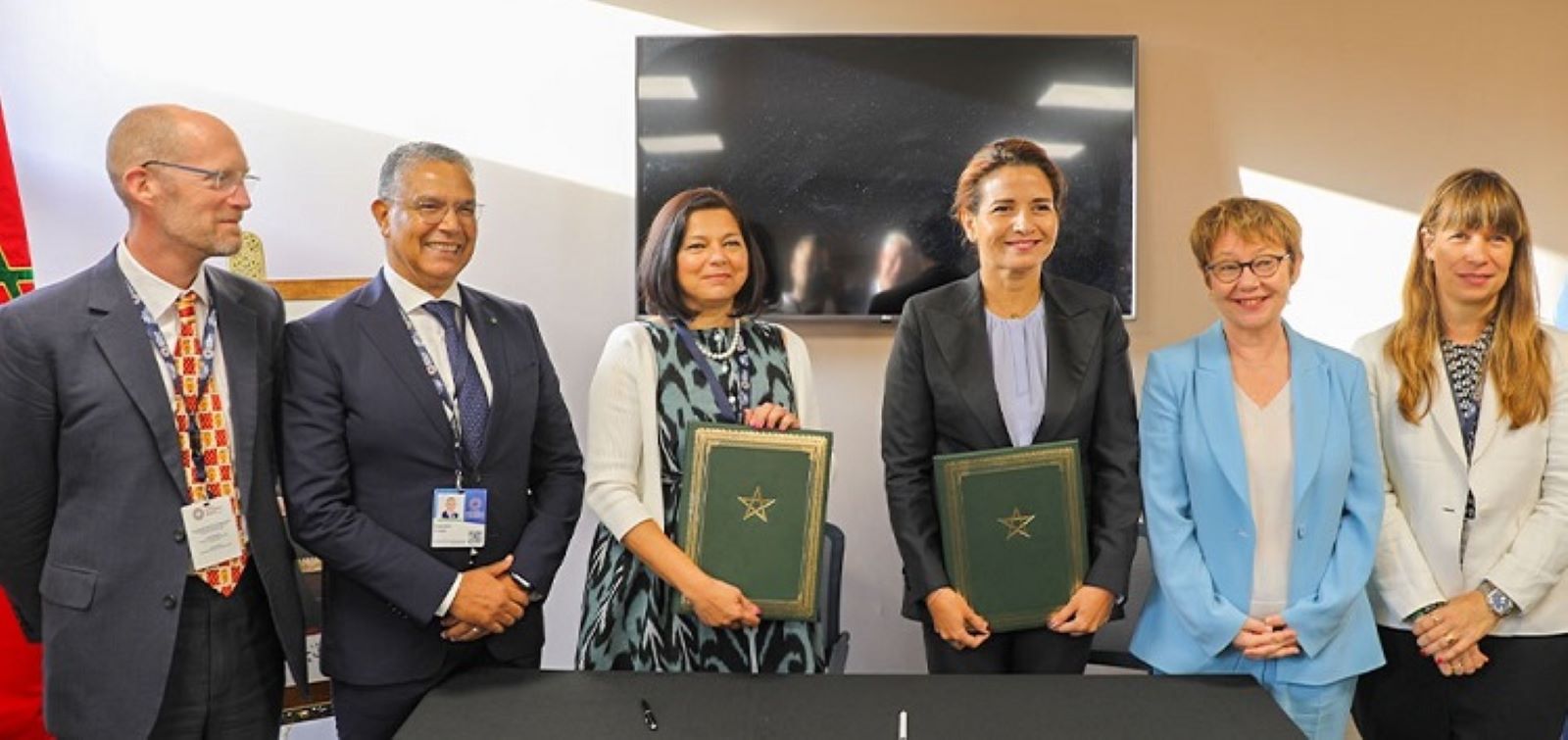
EBRD and Morocco join forces to accelerate country’s green energy transition: The European Bank for Reconstruction and Development (EBRD) signed an agreement with Morocco’s Energy Transition and Sustainable Development Ministry to help the country increase renewables projects, improve electric grid infrastructure, and create energy-efficiency networks across the country, according to a statement released last week. The lender did not specify the type of financing it will allocate to support green energy projects or when the projects would break ground.
Aim of the MoU: The agreement aims to boost the clean energy capacity of Morocco’s Office National de l'Electricité et de l'Eau potable (ONEE) under both the country’s 48-15 electricity market regulation law and national decarbonization efforts to have renewables account for 80% of the country’s total power generation by 2050. Morocco plans to more than triple allocations for renewables projects to MAD 14 bn (c. USD 1.4 bn) between 2023-2027 as part of a target to have 50-52% of its energy come from renewables by 2030. The country’s installed renewable energy capacity totalled more than 4 GW as of 2022.
REMEMBER- Morocco has a lot of wind energy potential: Nareva Enel Green Power (NEGP) — a JV between Morocco’s electricity company Nareva and Italian renewable energy developer Enel Green Power — kicked off operations on its 300 MW Boujdour wind farm back in July. The wind farm is part of NEGP’s 850 MW Integrated Wind Project (IWP), which seeks to deploy an additional 100 MW from the onshore Tiskrad wind farm in Laayoune and 270 MW from the Jbel Lahdid onshore wind farm in Essaouira.
And Taqa Morocco plans to capitalize on the country’s wind power efficiency: Taqa Morocco — a subsidiary of Abu Dhabi National Energy Company (Taqa) — plans to allocate MAD 3.3 bn (c. USD 320 mn) to develop renewable energy projects in the country yielding an expected 200 MW by 2025.
RENEWABLES
GCC Interconnection Authority launches energy trading platform for GCC-Iraq transmission grid
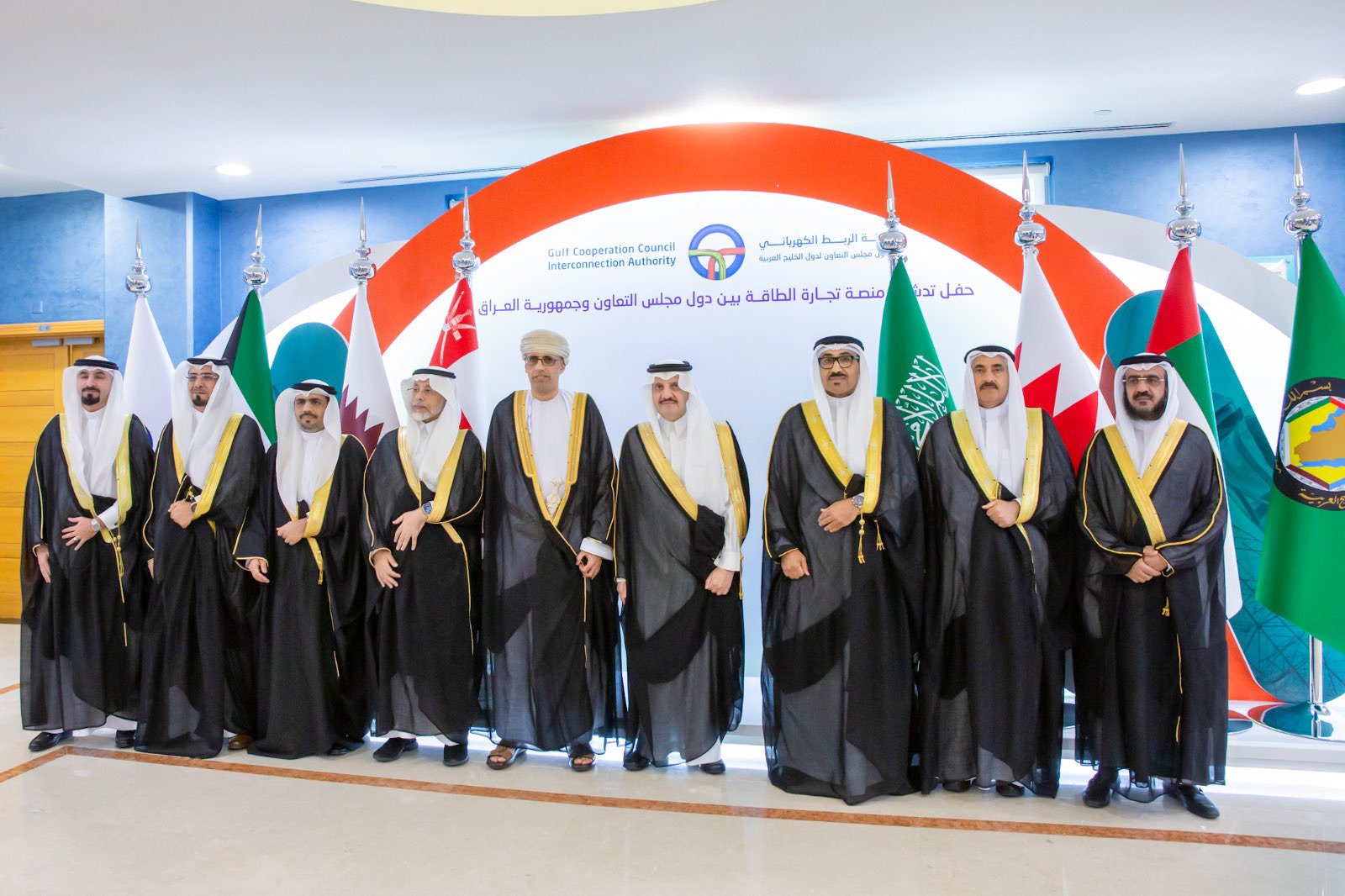
GCCIA launches energy exchange platform for GCC-Iraq transmission grid: A platform that will manage the trade and exchange of energy transmitted via the GCC-Iraq electricity interconnection was inaugurated last week, according to a statement by the GCC Interconnection Authority (GCCIA) released last week. The Gulf Electricity Interconnection Project is expected to launch next year, while other expansion lines will be completed at a later date, GCCIA CEO Ahmed Al-Ebrahim told Alarabiya (watchtime, 0:38) on the sidelines of the inauguration. The GCCIA predicts that transmission through the line will reach 2 TW in summer and 0.5 TW in the winter and revenues from the electricity trades are expected to reach USD 200-300 mn annually.
About the project: The USD 220 mn Gulf Electricity Interconnection Project stretches over 1km from Kuwait to Oman and plans to connect all six gulf countries, according to Al-Ebrahim. Currently, it consists of nine electricity transmission stations, the most important of which is Al-Fadhili Station in Saudi Arabia — the biggest connecting station in the Middle East — Al-Ebrahim explained on the sidelines of the inauguration (watchtime, 0:38). Since its inception, the project has saved approximately USD 3 bn compared to the initial investment and operational costs, the GCCIA said.
Lots of expansion works underway: The Al-Wafra station in Kuwait is a quarter way through the construction stage and is scheduled to be operational in December of next year, according to the GCCIA. Al-Wafra will be the main linking point to Iraq, and will expand the interconnection capacity with Kuwait from 1.2 GW to 3 GW, he added (watchtime, 0:59). The expansion of the connection to the UAE is also underway, with two 400-kilovolt lines expected to be completed by the end of 2025 that will see the transmission capacity increase from 1.2 GW to 3 GW, and a direct connection with Oman will increase the transmission capacity from 400 MW to 1.2 GW (watchtime, 1:20). Connections with Jordan and Turkey were also announced earlier this year.
Stronger interconnections = faster green transition: Given that the interconnection project will be used to export electricity to Iraq, including electricity generated by renewable energy, it will reduce the dependence on fossil fuels and facilitate clean power exports to other countries in the region and beyond, thus providing higher interconnectivity and integrability of renewables into the GCC grids, according to a chapter written by Al-Ebrahim in a book titled Renewable Energy Integration. Renewables trading is likely to increase as countries move closer to reaching their emission targets.
IN OTHER IRAQ NEWS- Iraq courts the private sector to help with renewables targets: Iraq will invite more companies to set up solar power projects in efforts to expand its renewables capacity to a third of its energy mix by 2030, the Iraqi News Agency reported on Wednesday, citing comments by Iraq's Prime Minister Mohammed Al-Sudani. Al-Sudani’s comments came on the sidelines of the 6th Russian Energy Week International Forum in Moscow. The country is also planning its first waste to energy project, the Iraqi News Agency reported last week.
CLIMATE DIPLOMACY
Greece turns to UAE to forge relations with India
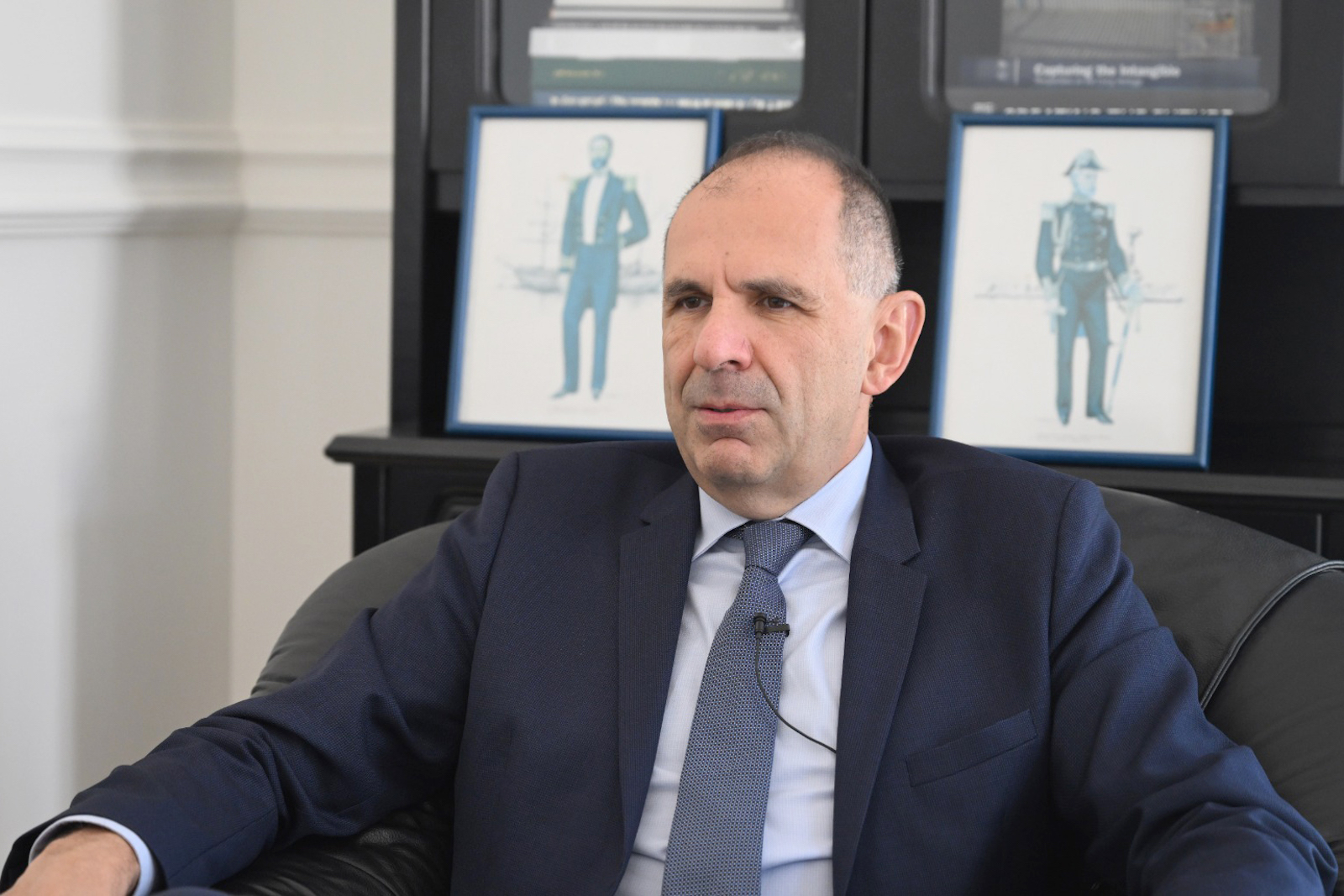
Greece wants tripartite relationship with UAE, India: Greece is turning to the UAE to help it forge trilateral relations with India, its Foreign Minister George Gerapetritis told Wam in an interview on Wednesday. “Greece would welcome a trilateral relationship with the UAE and India, focused on enhanced economic cooperation, the development of infrastructure and the implementation of joint projects in the fields of transportation, logistics, energy, and trade, in view of the planned India-Middle East-Europe Economic Corridor,” he said. His statements were made during his first official visit to the country, where he said he aims to strengthen cooperation in the UAE in security, defense, renewable energy, and combating climate change.
Common goals: Gerapetritis said that Greece and the UAE have similar carbon neutrality goals, with both aiming to achieve net zero emissions by 2050. He said Greece’s renewable energy now accounts for c. 50% of local demand with a target to raise it to 80% by 2030.
ALSO- UAE and South Korea conclude CEPA negotiations: UAE and South Korean officials attended a signing ceremony marking the end of negotiations for the Comprehensive Economic Partnership Agreement (CEPA) to strengthen their trade ties, UAE State Minister for Foreign Trade Thani bin Ahmed Al Zeyoudi said. The CEPA will help eliminate or lower tariffs on several goods, remove trade barriers, and pave the way for investments in priority sectors like energy, logistics, food production, e-commerce, and others, Wam said. The UAE has rolled out several CEPAs with Turkey, Indonesia, Israel, and India in recent months.
ALSO ON OUR RADAR
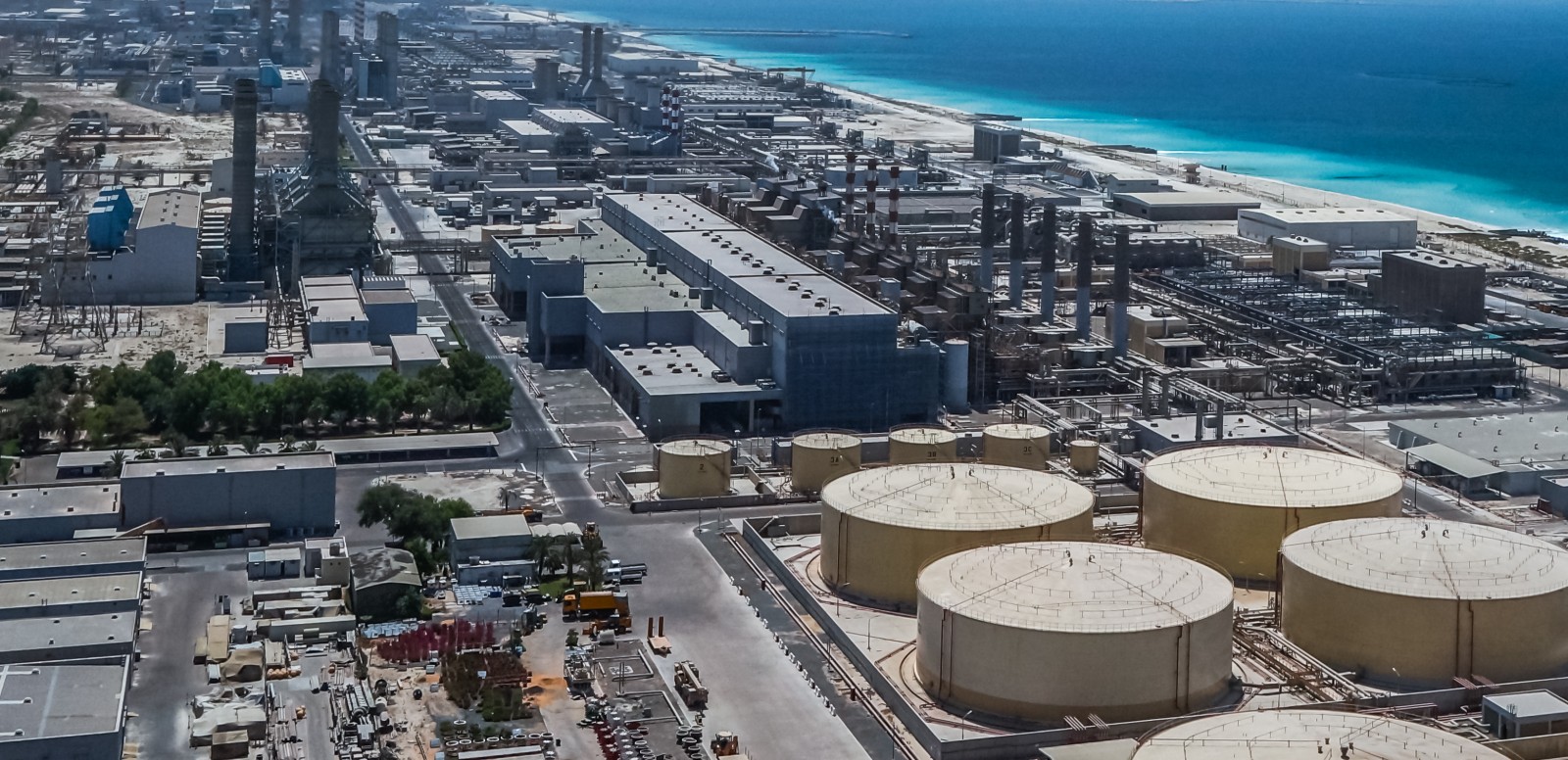
DESALINATION-
Morocco is lining up a renewables-powered desalination tender: Morocco plans to launch a tender for a desalination plant with an annual capacity of 250 mn cubic meters by the end of 2024, the kingdom’s Water and Equipment Minister Nizar Baraka told Reuters on Thursday. The facility — set up in north-eastern Moroccan city of Nador — will be the second largest in the country after a planned 300 mn cubic meter desalination project in Casablanca, he said. Construction will begin on the Casablanca plant in early 2024, with fresh water set to be pumped by 2027, he said. Both desalination plants will be powered by renewable energy, he added. “Desalination will ensure drinking water for coastal regions and free up dam water to inland cities, rural areas and farming,” Baraka said.
All under an ambitious plan: Morocco eyes setting up eight new desalination plants powered by renewables, with the facilities adding to an existing 12 run by fossil fuels, the newswire noted. Morocco is targeting the production of 1.3 bn cubic meters of fresh water from desalination by 2035.
GREEN FINANCE-
Egypt need funds to switch out gas-fired stations: Egypt’s NWFE program is looking to secure a USD 150 mn loan from the European Bank for Reconstruction and Development (EBRD) to switch out before the end of the year to decommission gas-fired power stations, Asharq Business reported last week, citing two unnamed government officials. The money would be used to replace aging gas-fired power stations with renewable energy in a bid to strengthen the country’s power grid and reduce emissions, one of the sources said.
REMEMBER- The EBRD is the lead partner in the NWFE’s energy pillar, to which it will contribute USD 200-300 mn. The money will be used to decommission 5 GW of gas-fired power plants by 2025 and establish 10 GW of solar and wind projects by 2028. The pillar is expected to mobilize USD 10 bn of private-sector investment and USD 500 mn of soft loans, grants, and assistance from donors and international financial institutions.
KSA’s SFD is lending Grenada USD 100 mn for smart + green infrastructure: The Saudi Fund for Development (SFD) will extend a USD 100 mn loan to the Grenada government to finance a climate smart infrastructure project, according to a statement published on Friday. The project — which will focus on the towns of St. George, Greenville, and other neighboring areas — will involve constructing breakwaters, developing water and sewage networks, modernizing and developing the sewage treatment system, and using remote sensors to monitor air pollution, the statement said. The loan agreement was signed by SFD CEO Sultan Al-Marshad and Grenada Finance Minister Dennis Cornwall on the sidelines of the Annual Meetings of the World Bank and the International Monetary Fund (IMF) in Marrakesh, which concluded yesterday.
REMEMBER- Not SFD’s first Caribbean venture: In August, the Saudi development fund approved a USD 77 mn green loan to the Belizean government to finance construction of a 60 MW solar farm that is expected to offset some 60k tons of CO2 emissions annually.
EGA + Emirates NBD launch ESG-linked financing program: State-owned aluminum manufacturer Emirates Global Aluminium (EGA) and UAE-based banking group Emirates NBD launched a supply chain finance (SCF) program to help aluminum producers green their UAE operations, according to a statement released on Thursday. “The programme will contribute towards improving the sustainability of the UAE aluminum sector by incentivising existing and new suppliers to adopt and invest in sustainable practices, technologies and materials that are aligned with EGA’s sustainability goals and demonstrably improve their own sustainability performance,” the statement read. EGA provided some USD 1.5 bn to its suppliers since the start of 2022 through its SCF programs, the company notes.
SUSTAINABLE AVIATION-
A push for SAF in Oman: Oman’s Civil Aviation Authority (CAA) has signed an MoU with state energy company OQ and and global sustainable aviation fuel (SAF) market leader SkyNRG to examine the possibility of producing the alternative fuel in the sultanate, Oman News Agency reported on Wednesday. Under the MoU, the three signatories would determine the necessary requirements to set up a unit for SAF in the country. The MoU also covers researching techniques for producing the fuel.
KSA’s Red Sea Global is taking its zero-carbon tourist destinations to the next level: Red Sea Global (RSG) — a global multi-project developer fully owned by Saudi Arabia’s sovereign wealth fund the Public Invesment Fund— has launched the country's first seaplane company to ferry visitors between island resorts using sustainable aviation fuel, according to a statement published on Wednesday. The subsidiary company — called Fly Red Sea — will initially operate a fleet of four luxury Cessna Caravan 208 seaplanes with a target to expand to nine plans by 2028 and over 20 by 2030. The planes will cater to the group’s two ultra-luxury resorts The Red Sea and Amaala.
REMEMBER– RSG is cracking down on emissions: RSG entered into a 25-year concession agreement with French power giant EDF and the UAE’s state-owned renewables player Masdar on a multi-utility infrastructure facility to service Amaala resort last month. The new facility will include a solar station with a 700 MWh battery energy storage facility, a fully powered RO desalination plant with a capacity of 37 mn liters of water per day, and a wastewater treatment plant. The facility is scheduled for completion by early 2025.
RENEWABLES-
India’s Bhageria tapped to build 11 MW solar project in Bahrain: Operator of the Khalifa bin Salman Port APM Terminals Bahrain has awarded an INR 104.5 (USD 12.6 mn) engineering, procurement, and construction (EPC) contract to India’s chemicals and renewables firm Bhageria Industries to build an 11.4 MW solar turnkey project in Bahrain, according to a statement (pdf) released last week. Bhageria will also manage the operation and maintenance of the plant — called the Kingdom of Bahrain Rooftop Project — for 10 years. The project will mark the first entrance for Bhageria in Bahrain’s renewables market, and is scheduled to begin operations in eight months.
APM has been making strides in its green transition: APM Terminals plans to launch a USD 10 mn solar power plant to help the port reach energy self-sufficiency by the end of the year to help slash the port’s carbon emissions by 65%. The project is planned to have 20k solar panels capable of generating 18.5 GW of electricity annually. Last year, Jordanian state-owned utilities and infrastructure firm Aqaba Development Corporation inked a USD 242 mn agreement with APM Terminals Bahrain to turn Aqaba port into a regional logistics hub.
WASTE MANAGEMENT-
KSA launches global e-waste regulation initiative pilot: Saudi Arabia's Communications, Space, and Technology Commission (CST) is launching an initiative aimed at helping countries develop regulations to reduce e-waste, the Saudi Gazette reported last week. The initiative — called the Development of Electronic Waste Management Regulations — will trial the regulations in Zimbabwe, Rwanda, and Paraguay before expanding globally. CST is carrying out the initiative in partnership with the International Telecommunication Union (ITU), the statement said, adding that the initiative represents one of the outcomes of an agreement signed last June between the two entities to implement regulations that empower the circular economy. The announcement of the e-waste initiative was launched on the sidelines of the Mena Climate week in Riyadh. Only 17% of the 54 mn tons of e-waste is recycled globally, the equivalent of a 15-tonne reduction in CO2.
OTHER STORIES WORTH KNOWING ABOUT THIS MORNING-
- Emirates Steel joins net zero initiative: ADX-listed Emirates Steel Arkan has become a member of ResponsibleSteel requiring the company to adhere to socially and environmentally responsible net-zero steel production. The company captures 800k tons of CO2 per year from one of its operating plants and plans to build a low-carbon iron supply chain complex in Khalifa Economic Zones Abu Dhabi. (Wam)
- Abu Dhabi repurposed over 3 mn tons of waste in 2022: The Emirate of Abu Dhabi converted some 3.4 mn tons of waste through 27 refuse management centers in 2022, with recycled demolition waste — for gravel production –- making up the bulk at around 2.2 mn tons, and 59k tons of biowaste being converted into organic fertilizers. (Wam)
AROUND THE WORLD
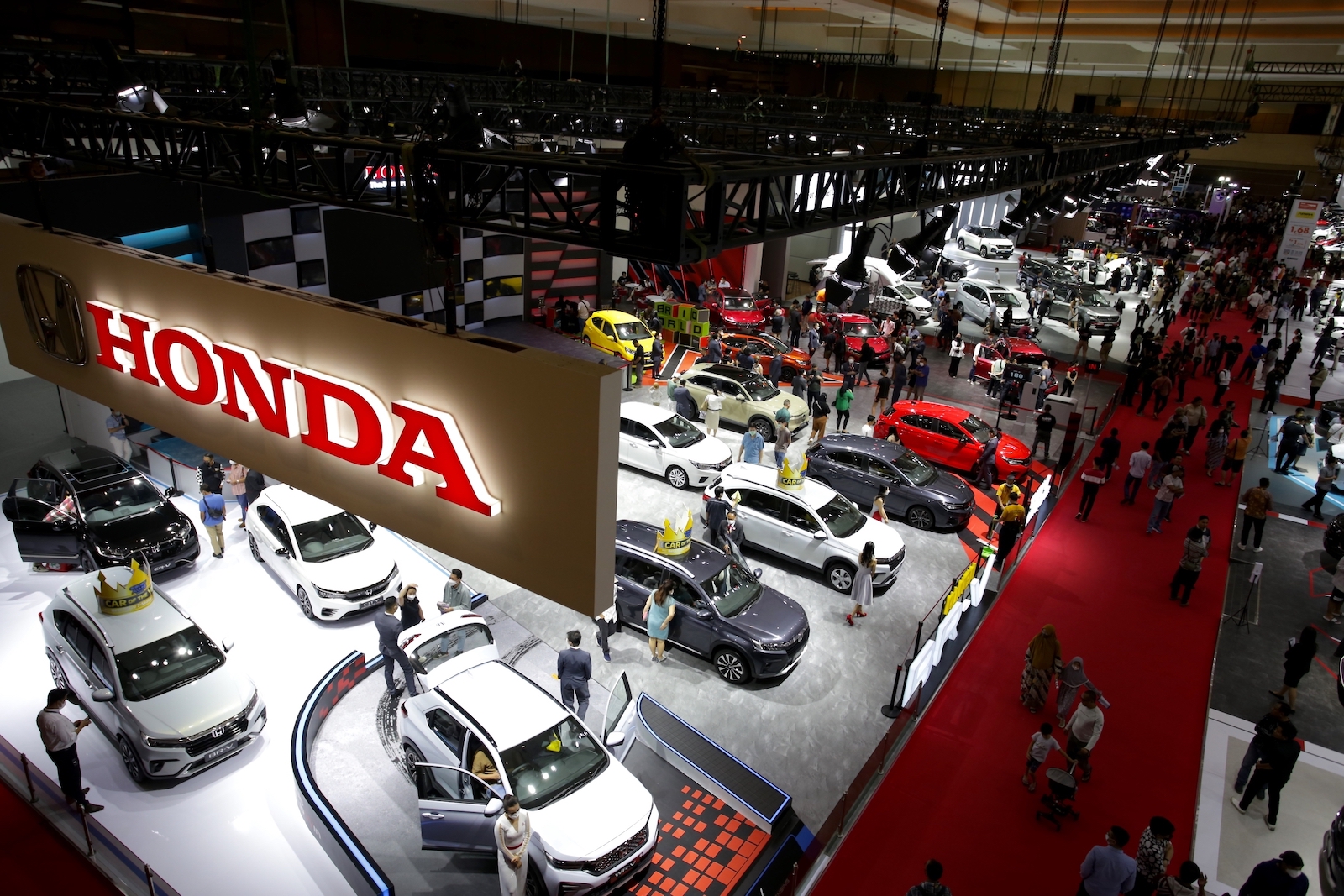
Honda, Mitsubishi to set up EV battery-focused businesses: Japanese carmaker Honda and trading company Mitsubishi Corporation have signed an MoU to explore setting up new businesses focusing on optimizing the use of EV batteries, a joint statement read on Thursday. Under the MoU, the two companies will explore setting up a business to monitor the usage of batteries installed in Honda mini-EV models that are set to begin sales in Japan next year. It said the new business would “manage and maximize the value of each battery throughout its lifetime shifting from powering EVs to use as stationary energy storage,” according to the statement. A second business would help EV users optimize electricity costs by providing access to smart-charging, the statement said.
Japan launched its first carbon-credit exchange as it aims to become carbon neutral by 2050, Bloomberg reported on Wednesday. The new exchange allows participants to trade the local J-Credits in six categories, including renewable energy and agriculture. The renewable energy category was the most active J-Credit on the first day of trading, with c. 3k tons of emissions traded in the afternoon session at JPY 3.06k (c. USD 20.58) per ton, according to the exchange. “Through carbon credit trading, carbon emissions reduction can be priced, thereby improving the predictability of decarbonization investment and encouraging companies to implement them,” Japanese Trade Minister Yasutoshi Nishimura said.
REMEMBER- Other Asian countries want to get rolling on pricing pollution: Last month, Indonesia kicked off its first voluntary carbon credits market as part of state plans to become carbon-neutral by 2060 and become a major global carbon allowances trading hub.
OTHER STORIES WORTH KNOWING ABOUT THIS MORNING-
- EU supports Italy’s green fuels targets with fresh funding: The EU Commission has signed off on EUR 100 mn in financing — to be provided as direct grants — to support Italy’s green hydrogen generation targets under the EU’s Temporary Crisis and Transition Framework state-aid project. The financing aims to boost electrolyzer production in Italy as hydrogen demand in the country is set to reach 26.6 TWh by 2030 and 85.4 TWh by 2050. (Statement)
- World’s first electric + autonomous passenger aircraft certified in China: China-based Ehang has received the world’s first industry certificate to fly a two-passenger autonomous electrical vertical take-off and landing (eVTOL) aircraft, issued by the Civil Aviation Administration of China. The company — which is working on setting up a manufacturing eVTOL facility in the UAE — hopes this step will help it secure similar certificates for commercial operation in the US, Europe, and Southeast Asia. (CNBC)
CLIMATE IN THE NEWS
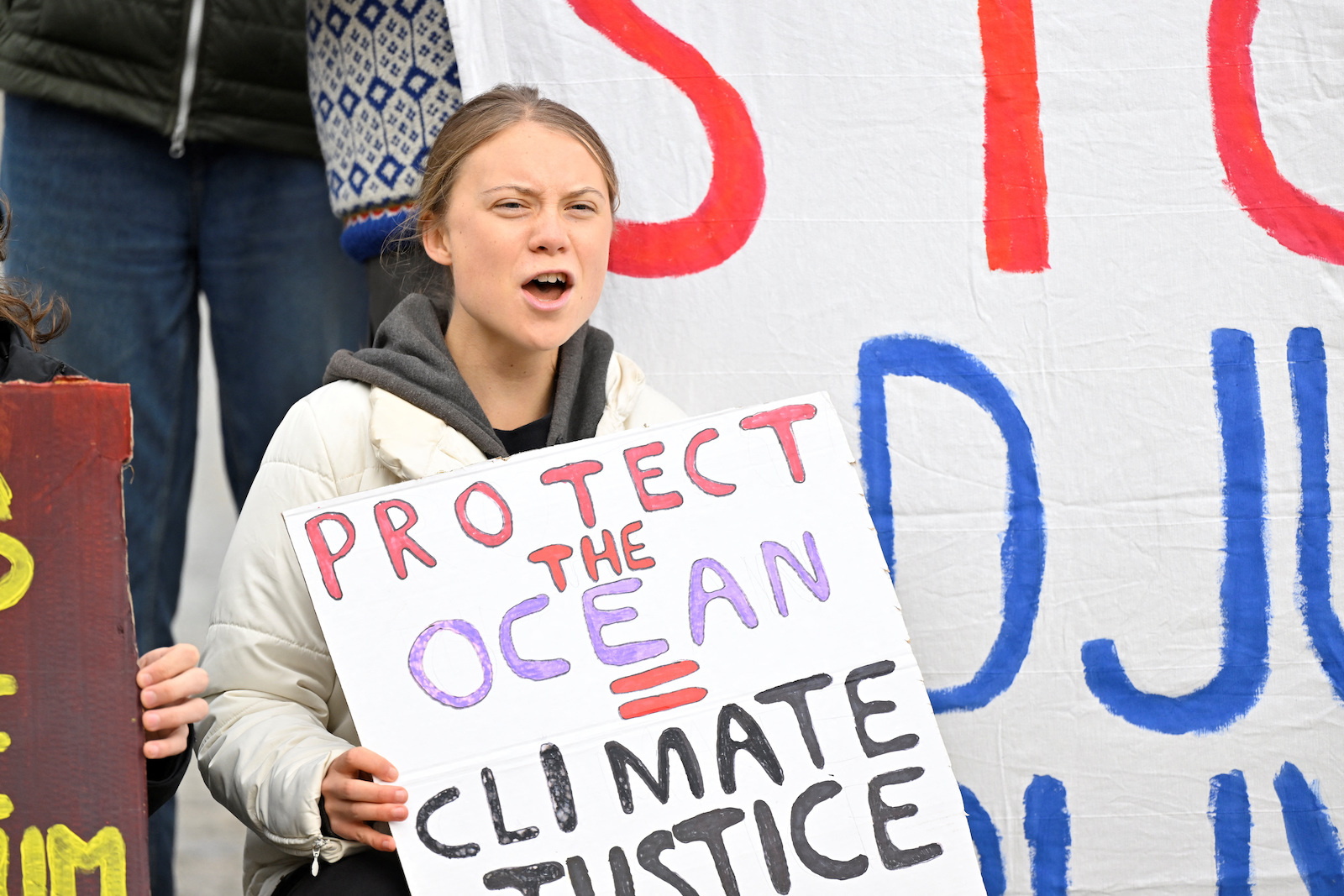
Is Gen Z less anxious about climate change than prior generations? People born after the first COP in 1995 are less jittery about climate change than older generations, Bloomberg reported on Thursday, citing a global survey across 39 economies. The Climate Reality Barometer by Seiko Epson — which surveyed over 30k people — showed that almost 49% of the respondents aged 16 to 29 were “very optimistic” or “somewhat optimistic” that they won't be affected by extreme weather events exacerbated by climate change. This compares to a percentage of 32% for respondents aged 55 and older. The survey found that the “COP generation” do not have the same sense of urgency as older generations do. “Younger people have been living under global warming since birth, so they may not feel so threatened by the change,” Epson CEO Yasunori Ogawa told Bloomberg in an interview.
The real worry? Inflation: The survey found out that inflation was of greater worry than climate change for the “COP generation,” in contrast with global warming being the top concern for those aged 30 and older.
OTHER STORIES WORTH KNOWING ABOUT THIS MORNING-
- World bound for irregular climate-induced hydrological cycles: The world will see an “increasingly erratic” water cycle that includes extreme flooding and drought on the back of climate change and human activities, according to the World Meteorological Organization. (Financial Times)
CALENDAR
OCTOBER 2023
16-17 October (Monday-Tuesday): Duqm Economic Forum, Duqm, Oman.
16-18 October (Monday-Wednesday): Climate Week, Rome, Italy.
16-20 October (Monday-Friday): UNCTAD World Investment Forum, Abu Dhabi, UAE.
18-19 October (Wednesday-Thursday): 9th Conference of Environment Ministers in the Islamic World, Jeddah, Saudi Arabia.
18-20 October (Wednesday-Friday): Morocco and Belgium business meeting on green hydrogen, Tangiers, Morocco.
17-18 October (Tuesday- Wednesday): Critical Minerals Africa Summit, Cape Town, South Africa.
17-19 October (Tuesday-Thursday): Energy Intelligence Forum, London, UK.
17-20 October (Tuesday-Friday): Fourth meeting of the COP27 Transitional Committee, Aswan, Egypt.
25-26 October (Friday-Saturday): Offshore & Floating Wind Europe 2023, London, United Kingdom.
29 October-2 November (Sunday-Thursday): Cairo Water Week, Cairo, Egypt
29 -31 October (Sunday-Tuesday): Egypt Energy Conference, Egypt International Exhibition Centre, Cairo, Egypt.
30 October – 1 November (Monday-Wednesday) ISWA 2023 World Congress: Global action towards a net-zero future, Muscat, Oman.
31 October-2 November (Tuesday-Thursday): Financial Times’ Energy Transition Summit, London, UK.
31 October-2 November (Tuesday-Thursday): World Hydropower Congress, Bali, Indonesia.
NOVEMBER 2023
1-3 November (Wednesday-Friday): Forbes Middle East Sustainability Leaders Summit 2023, Abu Dhabi, UAE.
7-8 November (Tuesday-Wednesday): ADIA Lab Symposium on Climate Change and Health Sciences, Abu Dhabi, UAE.
7-8 November (Tuesday-Wednesday): The 2023 US Algeria Energy Forum, Washington DC, USA.
9-10 November (Thursday-Friday): International Renewable Energy Agency Investment Forum, Uruguay.
9-15 November (Thursday-Wednesday): Intra-African Trade Fair 2023, Cairo, Egypt.
11-13 November (Saturday-Monday): GCC-Türkiye Economic Forum, Istanbul, Turkey.
15-17 November (Wednesday-Friday): WETEX and Dubai Solar Show, Dubai, UAE.
15-18 November (Wednesday-Saturday): DEWA’s First MENA Solar Conference, Dubai, UAE.
20-24 November (Monday-Friday) International Civil Aviation Organisation’s Aviation and Alternative Fuels conference, Dubai, UAE.
27-30 November (Monday-Thursday) Abu Dhabi Finance Week (ADFW), Abu Dhabi, UAE.
28-29 November (Tuesday-Wednesday): World Green Economy Summit (WGES), Dubai, UAE.
30 November – 12 December (Thursday-Tuesday): Conference of the Parties (COP 28), Dubai, UAE.
DECEMBER 2023
4 December (Monday): Saudi Green Initiative Forum, Dubai, UAE.
4 December (Monday): Abu Dhabi Sustainability Week (ADSW) summit, Dubai, UAE.
8 December (Friday): Youth for Sustainability Forum (Y4S), Dubai, UAE.
12-14 December (Tuesday-Thursday): Green Hydrogen Summit Oman, Oman Convention and Exhibition Center, Muscat, Oman.
18-20 December (Monday-Wednesday): Saudi Arabia Smart Grid Conference, Hilton Riyadh Hotel & Residences, Riyadh, Saudi Arabia.
JANUARY 2024
9-11 January (Tuesday-Thursday): Future Minerals Forum, Riyadh, Saudi Arabia.
FEBRUARY 2024
26-28 February (Monday-Wednesday): Management and Sustainability of Water Resources, Dubai, UAE.
MARCH 2024
4-6 March (Monday-Wednesday): International Conference on Sand and Dust Storms in the Arabian Peninsula, Riyadh, Saudi Arabia.
APRIL 2024
16-18 April (Tuesday-Thursday): World Future Energy Summit, Abu Dhabi, UAE.
23-25 April (Tuesday-Thursday): Connecting Green Hydrogen MENA, Dubai, UAE.
MAY 2024
19-21 May (Sunday-Tuesday): Saudi Energy Convention, Riyadh, KSA.
JUNE 2024
5 June (Wednesday): World Environment Day, Saudi Arabia.
OCTOBER 2024
10-12 October (Tuesday-Thursday): Autonomous E-Mobility Forum, Doha, Qatar.
DECEMBER 2024
2-13 December (Monday-Friday): Conference of the Parties (COP16) to the United Nation Convention to Combat Desertification, Riyadh, KSA.
EVENTS WITH NO SET DATE
2023
Mid-2023: Oman set to sign contracts for green hydrogen projects.
Mid-2023: Sale of Sembcorp Energy India Limited to consortium of Omani investors to close.
Phase C of the 900-MW of the Mohammed bin Rashid Al Maktoum Solar Park in Dubai to be completed.
Saudi Basic Industries Corporation (Sabic) steam cracker furnace powered by renewable energy to come online.
2024
12-14 February (Monday-Wednesday): Sustainable Aviation Futures MENA Congress, Dubai, UAE.
End-2024: Emirati Masdar’s 500 MW wind farm in Uzbekistan to begin commercial operations.
QatarEnergy’s industrial cities solar power project will start electricity production.
2025
International Union for Conservation of Nature World Conservation Congress, Abu Dhabi, UAE.
UAE to have over 1k EV charging stations installed.
2026
UITP Global Public Transport Summit, Dubai, UAE.
1Q 2026: QatarEnergy’s USD 1 bn blue ammonia plant to be completed.
End-2026: HSBC Bahrain to eliminate single-use PVC plastic cards.
2027
MENA’s district cooling market is expected to reach USD 15 bn.
2030
UAE’s Abu Dhabi Commercial Bank (ADCB) wants to provide AED 35 bn in green financing.
UAE targets 14 GW in clean energy capacity.
Tunisia targets 30% of renewables in its energy mix.
Qatar wants to generate USD 17 bn from its circular economy, creating 9k-19k jobs.
Morocco’s Xlinks solar and wind energy project to generate 10.5 GW of energy.
2035
Qatar to capture up to 11 mn tons of CO2 annually.
2045
Qatar’s Public Works Authority’s (Ashghal) USD 1.5 bn sewage treatment facility to reach 600k cm/d capacity.
2050
Tunisia’s carbon neutrality target.
2060
Nigeria aims to achieve its net-zero emissions target.
Enterprise Climate is available without charge thanks to the generous support of HSBC (tax ID: 204-901-715), the leading corporate and retail lender in Egypt; and Infinity Power (tax ID: 305-170-682), the leading generator and distributor of renewable energy in Africa and the Middle East. Enterprise Climate is delivered Mon-Thurs before 4 am UAE time. Were you forwarded this copy? Sign up for your own delivery at climate.enterprise.press. Contact us on climate@enterprisemea.com.


